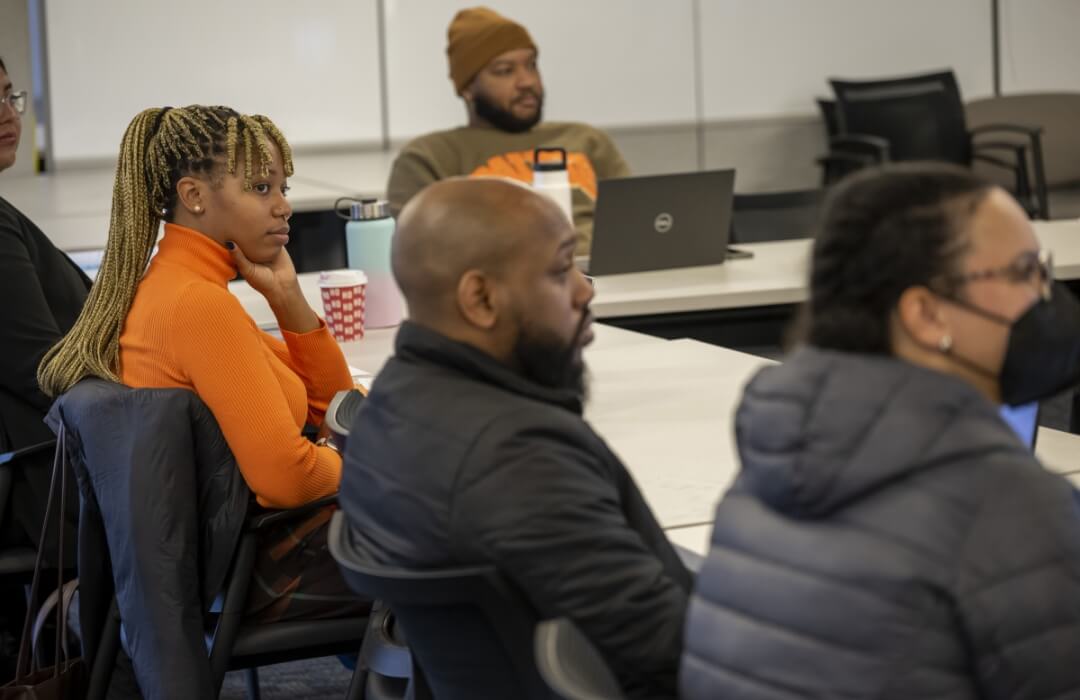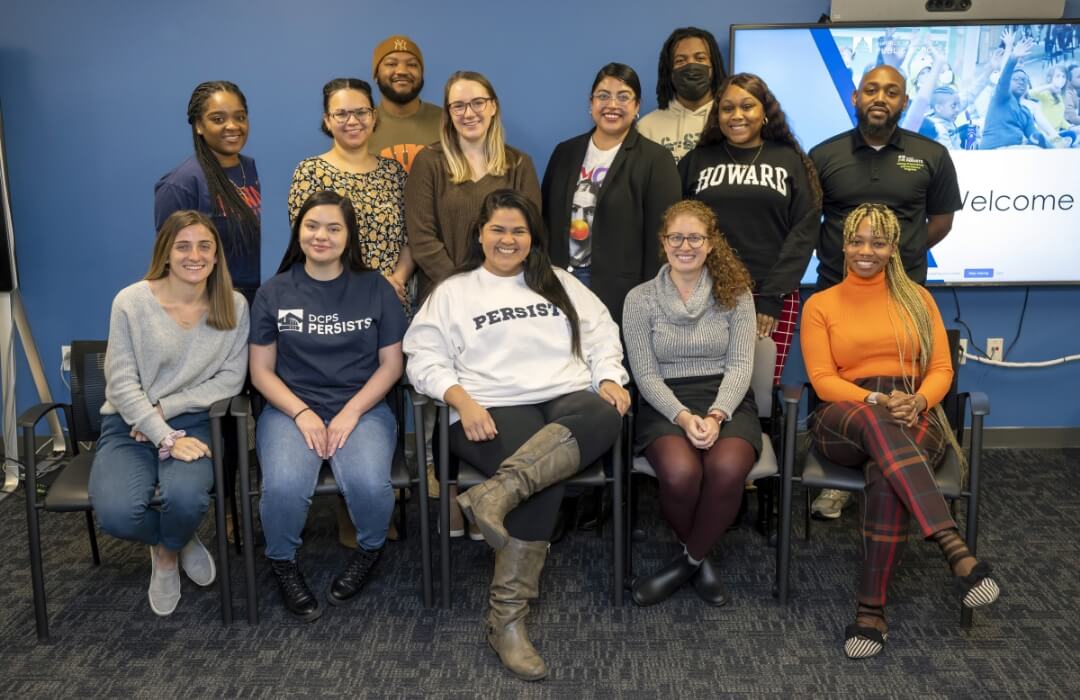2022 Year in Review • Grantee Profile
With Coaching and Mentoring, DC Students Persist Through College
Shayla Dyson, a first-year student at Trinity Washington University, believes she is thriving at college largely due to the support she receives from her personal coach, Jess Mardo. Dyson is one of over 2,000 alumni of the Washington, DC Public School district (DCPS) benefiting from DCPS Persists, a unique program that empowers students during their transition to higher education with guidance and mentorship to help them stay enrolled and succeed at college.
“The most helpful part of this program is having a personal cheerleader, my coach, that helps me along the way of this new and difficult journey without ever making me feel like I’m asking for too much,” Dyson said.
DCPS is the only large urban school system in the country to comprehensively and continuously support its high school graduates during college. While 50% of DCPS students go on to higher education, only 38% earn a degree within six years. DCPS Persists, created in 2020 with a $10 million investment from the Clark Foundation, aims to increase the percentage of students earning their college degree. The Foundation made this system-wide investment based on knowledge and insights from experts in education and the needs of DC students.
Participating students in all 20 district high schools officially begin their DCPS Persists journey upon their high school graduation. Students begin the program by participating in summer transition workshops focused on time management, getting involved, deciphering financial aid and costs and preparing for the adjustment to college. Once college starts, students are offered the opportunity to attend monthly check-ins with their assigned coach, are eligible to receive microgrant assistance, and attend in-person or virtual alumni events.
Students are grateful simply that someone has their back. Even before they start to actively receive support from a coach, they are already grateful because they know that they’re not going to college alone. Knowing that they have someone that they can rely on, knowing that they can call or text their coach or any one of us with any question they may have already gives them relief. It takes that burden or that worry off of their shoulders because they know that they can count on us.
Karime Naime DCPS Director of College Preparedness
Francis Hodge, a program coach and native Washingtonian, said that much of his advising centers around informing students of all the campus resources available to them. “A lot of students pay thousands and thousands of dollars and aren’t aware that they have the tutoring services, the library, the writing lab, all these different resources they have exposure to. They don’t necessarily tap into that,” Hodge said, adding that many of his students are the first in their families to attend college. “And the career services center, I tell them every time, ‘That’s going to be your best friend,’ where they can find internships and job placements.”
Dyson affirmed that DCPS Persists has opened her eyes to all the support available on campus. “I definitely believe having this support helped me succeed and be more confident in college because without my coach, I would not have the financial support I needed nor would I have known about many different programs and opportunities she introduced me to,” Dyson said.
After giving students time to adjust to their first semester of college, Hodge said he checks in with them about establishing and attaining goals. He pushes them, for example, to think about not just getting good grades but how they will achieve those grades, including time management, study habits and taking advantage of their on-campus resources. “I challenge students as best as possible to become self-sufficient. And try not to always lean on me as much as I welcome them to lean on me because I tell them at some point, you’ll have to be a full-blown adult. And the real world shows us that support is not always like this,” he said.
In addition to the individual coaching and group workshops, DCPS Persists provides microgrant financial assistance when unexpected challenges around housing, food, or transportation arise. “To a student, that amount could mean the difference between staying in college or not,” said Karime Naime, the Director of College Preparedness for DCPS.
DCPS Persists has formal partnerships with five universities that are popular among DCPS alumni: Marymount University, Trinity Washington University, University of the District of Columbia, Morgan State University and Virginia State University. Program staff meet regularly with staff from these schools and exchange data on student performance. “We hope to, by way of the partnership, influence change on these college campuses,” said Naime. For example, DCPS Persists and these institutions discuss how DC high schools can better prepare students for college and services the universities can provide to keep them there such as psychological counseling and tutoring, campus childcare for students who are parents, and preventing food insecurity.
The program fulfills Mr. Clark’s beliefs in “give where you live” and in creating opportunities for young people in his home of Washington, DC. It also aligns with his focus on ensuring that students who want to pursue higher education have the support they need to fulfill their potential and overcome barriers.
Naime said that DCPS counselors welcome the idea that someone will be looking out for the students with whom they have developed relationships during high school. “Often we see this big push for college enrollment, but there’s not a lot that school districts are able to do to follow students through college,” Naime said, adding that nationally there is a large decline between college enrollment and continuing after the first year. “We have a system in place to ensure that our students are not just enrolling, but continuing to pursue that college education that they dreamed of when they were a ninth grader.”

